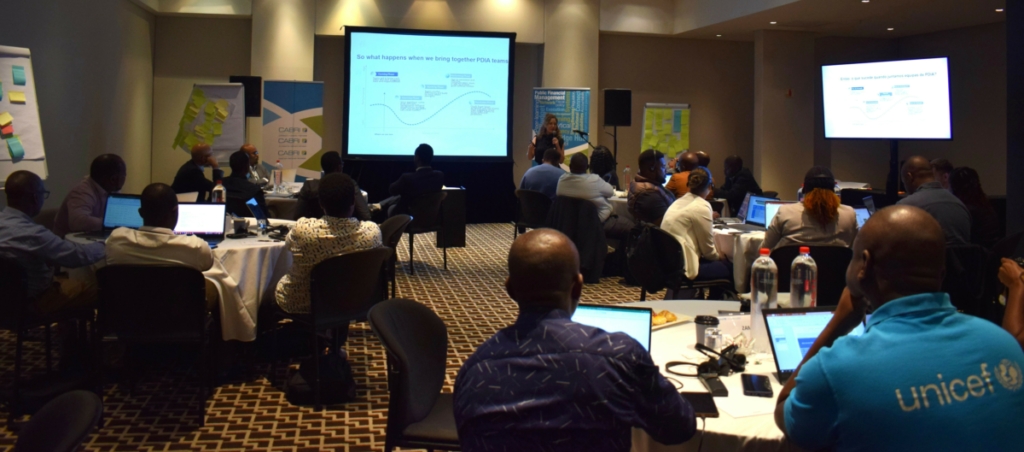Low spending in social sectors for children, combined with weaknesses in the management of public funds means that, too often, public resources don’t reach those most in need: weak funding structures may delay teacher payments, resulting in teacher absenteeism and poor learning outcomes for students; in health care, inadequate costing or inequitable distribution of funds can lead to a shortage of critical medicines, vaccines, and other supplies. Strengthening public finance systems and capabilities is paramount to delivering critical social services for children.

In November 2022, CABRI and UNICEF established a joint programme aimed at Building Public Finance Capabilities for improved social services for Children (BPFCC) in Malawi, Mozambique, Somalia, Zambia, and Zimbabwe. The 12-month BPFCC programme puts teams of government practitioners from ministries of finance, health, education, and local government, at the centre of efforts to tackle public finance problems in social sectors for children.
We began with a four-week online course that introduced teams to the Problem-driven Iterative Adaptation approach and asked them to collect data on the problem they nominated to better understand how it manifests and its impact. During a three-day framing workshop in Johannesburg from 7 to 9 February, the teams further refined their problem statements, shown in the box below, and began to understand their causes and consider ideas to resolve them. On the final day of the workshop, teams presented their refined problem statements, problem deconstruction represented through a fishbone diagram, and ideas for action. Their peers from other countries provided very useful feedback on both the causes of the problem and ideas for resolution.
| Malawi | Mozambique | Somalia | Zambia | Zimbabwe |
|---|---|---|---|---|
| Inequitable and insufficient financial resources for service delivery units, such as PHC facilities, limits the autonomy of facilities to plan and forecast their needs, budget, execute funding, and monitor expenditure. | Lack of coordination in the implementation of PBB has led to inefficiences, including duplication, inequitable allocation and ineffective spending. | Execution rates for donor-funded projects in health and education were 16% and 35% in 2022, respectively. This has contributed to 60% of children being out of school and one of the highest under-five mortality rates in SSA. | Low own-source revenue and a collection efficiency rate of 37% in local authorities has led to inadequate provision of social services, ultimately perpetuating poverty. | Underutilisation of the non-wage budget for primary and secondary education contributes to insufficient numbers of schools, inadequate infrastructure and learning materials, and more than two million children out of school. |
Over the next nine months, the teams will engage in the action-learning phase where they begin, through small, iterative steps, to resolve aspects of the problem. Coaches from UNICEF will support them on this journey encouraging constant reflection and adaptation. At a mid-term review workshop in May, we will hear from teams what progress they have made and what their next steps are until the progress-review workshop to be held in November 2023.